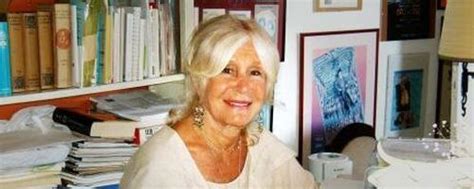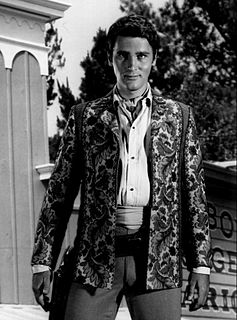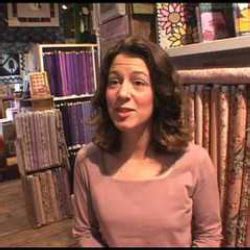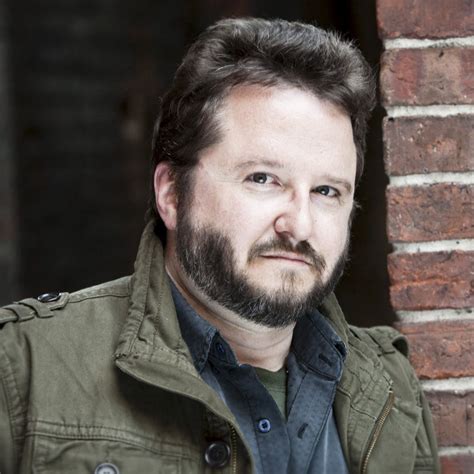A Quote by Jane Austen
Elizabeth had never been more at a loss to make her feelings appear what they were not. It was necessary to laugh, when she would rather have cried.
Related Quotes
As she had been walking from the ward to that room, she had felt such pure hatred that now she had no more rancor left in her heart. She had finally allowed her negative feelings to surface, feelings that had been repressed for years in her soul. She had actually FELT them, and they were no longer necessary, they could leave.
Elizabeth, having rather expected to affront him, was amazed at his gallantry; and Darcy had never been so bewitched by any woman as he was by her. He really believed, that were it not for the inferiority of her connections, he should be in some danger of falling in love, and were it not for his considerable skill in the deadly arts, that he should be in danger of being bested by hers--for never had he seen a lady more gifted in the ways of vanquishing the undead.
Her thoughts ran away to her girlhood with its passionate longing for adventure and she remembered the arms of men that had held her when adventure was a possible thing for her. Particularly she remembered one who had for a time been her lover and who in the moment of his passion had cried out to her more than a hundred times, saying the same words madly over and over: "You dear! You dear! You lovely dear!" The words, she thought, expressed something she would have liked to have achieved in life.
She was trying to say something else; she was trying to say that the inability to articulate what one feels in any satisfactory way is one of our enduring tragedies. It wouldn't have been much, and it wouldn't have been useful, but it would have been something that reflected the gravity and the sadness inside her. Instead, she had snapped at him for being a loser. It was as if she were trying to find a handhold on the boulder of her feelings, and had merely ended up with grit under her nails.
Her library would have been valuable to a bibliophile except she treated her books execrably. I would rarely open a volume that she had not desecrated by underlining her favorite sections with a ball-point pen. Once I had told her that I would rather see a museum bombed than a book underlined, but she dismissed my argument as mere sentimentality. She marked her books so that stunning images and ideas would not be lost to her.
Tessa had begun to tremble. This is what she had always wanted someone to say. What she had always, in the darkest corner of her heart, wanted Will to say. Will, the boy who loved the same books she did, the same poetry she did, who made her laugh even when she was furious. And here he was standing in front of her, telling her he loved the words of her heart, the shape of her soul. Telling her something she had never imagined anyone would ever tell her. Telling her something she would never be told again, not in this way. And not by him. And it did not matter. "It's too late", she said.
The door was locked and Alexia, resourceful as she was, had not yet learned to pick locks. Though she mentally added it to her list of useful skills she needed to acquire along with hand-to-hand combat and the recipe for pesto. If her life were to continue on its present track which after 26 years of obscurity, now seemed to mainly involve people trying to kill her, it would appear that acquiring a less savory skill set might be necessary. Although she supposed pesto making ought to be termed 'more savory'.
Had Elizabeth been able to encounter his eye, she might have seen how well the expression of heartfelt delight, diffused over his face, became him; but, though she could not look, she could listen, and he told her of feelings, which, in proving of what importance she was to him, made his affection every moment more valuable.
Audrey, it seems to me, never strove or hoped to leave a lasting legacy with her films - she was far too modest for that. But what I think she would have wanted, had she been given more time, would have been to continue her work for children because she knew that is a task with so much to be accomplished.
Imagine that Queen Elizabeth I, in her time, had the opportunity to give out a monopoly for playing cards within the kingdom. She knew she was going to give it to one of her courtiers. These courtiers would then all try to curry her favour. Meanwhile, they would not contribute anything to the product of the kingdom, in fact, they were wasting resources trying to secure a single prize. That, more or less, is rent seeking.
I think about the kinds of gardens that Queen Elizabeth put up. She made gardens in the shape of an "E," for Elizabeth, just one more way in which she used symbolism to solidify her reign: appearing as the Virgin Queen, for example, or wearing a dress embroidered with eyes and ears to indicate that she knew all that was going on in her castle; she had spies.
She should want to see me. If I had said how I feel about her, she would miss me even more. All this time, I've been breaking her heart by keeping her wait, yet I can't still appear before her eyes. I never want to see her cry anymore. Even if it means I no longer exist in her heart. How immature of me, right? -Kudou Shinichi





































